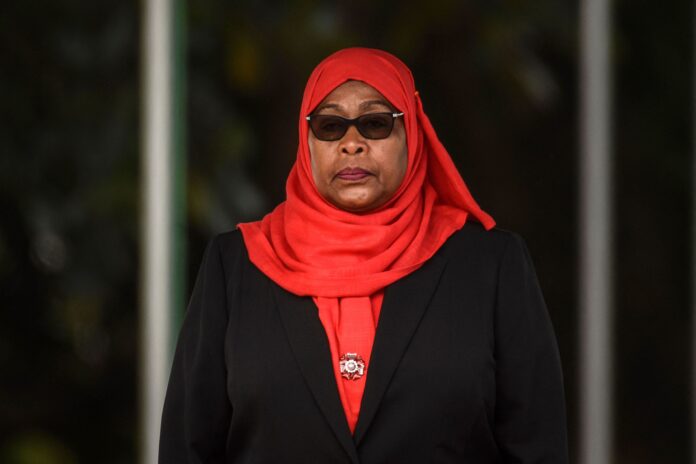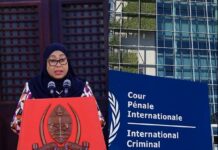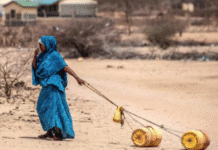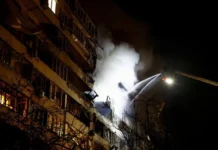As Tanzania’s national elections approach, a familiar humdrum of coverage has emerged. It goes like this. In its crackdowns, censorship and harassment of the opposition, Tanzania is becoming increasingly repressive.
President Samia Suluhu Hassan, who is seeking re-election in the October 2025 poll, increasingly resembles her predecessor, John Pombe Magufuli. Before he died in office in 2021, he banned media, censored journalists, hamstrung the opposition and rigged elections. Hassan is reverting to his tactics to lengthen her advantage in the elections.
Yet, I would go further. Hassan has become, in key ways, more autocratic than Magufuli. She has crossed autocratic thresholds that have not been breached since Tanzania’s transition to multipartyism in 1992. Most crucially, she has put her chief opponent Tundu Lissu on trial for treason. She has kept another out of the presidential race.
I have been writing about autocracy in Tanzania and chronicling the struggles of Tanzania’s opposition for over a decade. From this vantage point, I describe what makes this election different.
Many authoritarian regimes today take the form of what political scientists call electoral authoritarianism. It is a mixture of the outward form of multiparty democracy and autocratic practices that tilt the playing field in the incumbent’s favour.
Yet, the steps taken by Hassan’s regime amount to something more draconian than this.
Barring your opponents from contesting the presidency is not tilting the playing field in your favour. As I argue in a recent paper, it is closing the playing field altogether. Tanzanian columnist Jenerali Ulimwengu noted in a recent column: “there is no competition worth the name”.
Hassan has broken Tanzania’s political norms, and done so now, it seems, because the international context permits it more than any time in the last 30 years.
The ominous implication of all this is that an era of autocratic rule – which is yet more extreme than any endured in the last 30 years – has arrived.
Crossing red lines
In one way or another, Tanzania’s regime has been autocratic for decades. The party in power today, Chama cha Mapinduzi, has been in power since independence from Britain in 1961.
When Tanzania moved to multiparty elections in 1992, the party strengthened an autocratic apparatus that has developed since then. The regime enjoyed baked-in advantages in funding, business ties, media control and state capture. This gave it a long advantage in elections. Since at least 2000, it has been rigging, annulling and otherwise manipulating elections in the semi-independent archipelago of Zanzibar.
By 2015, however, the mainland opposition, led by Chadema, had become competitive. In this context, under the leadership of then-president Magufuli, repression intensified.
Media were banned, opposition parties were knee-capped, journalists were censored, activists were persecuted, and at large, freedoms were infringed. In the 2020 elections, there appeared to be mass manipulation across Zanzibar and Tanzania for the first time.
In some respects, despite promises of change, Hassan has picked up where Magufuli left off after his death.
There were some democratic concessions in the unbanning of some media outlets and opposition political rallies.
In this context, the opposition started rebuilding.
Yet, the talk of reform was largely cosmetic. Repression continued. Media censorship ticked up and state-sponsored political violence climbed.
Political rallies remained permissible formally, but were increasingly banned in practice. Nationwide local elections in 2024 were reportedly manipulated at scale.
In this context, much coverage has understandably drawn analogies from Hassan’s presidency to Magufuli’s. Yet Hassan has been crossing democratic red lines that Magufuli never did, even if he might have wanted to.
The leader of the opposition has been charged with non-bailable offenses, twice.
Freeman Mbowe was charged with terrorism offences and held for 226 days until his release in 2022. His successor, Tundu Lissu, who survived an assassination attempt in 2017, has been detained since 9 April 2025. He’s now facing trial on charges of treason, a crime punishable by death.
Magufuli had these and other opposition leaders arrested a number of times. Yet he did not have them charged with offences of such magnitude. Nor did he have them held for so long.
Hassan has found a way to eliminate her other most significant competitor from the race. Luhaga Mpina was prevented from submitting nomination forms to enter the presidential election as the candidate for Alliance for Change-Wazalendo. This was after a last-minute intervention from the registrar of political parties, who is a presidential appointee.
The high court subsequently ordered that he be reinstated. However, four days later, the nominally independent electoral commission revealed its true loyalties by barring Mpina’s candidacy again. The case is still being litigated.
The consequence is that Hassan is running to be re-elected as the president of Tanzania opposed only by minor candidates.
This is a scenario without precedent since the reintroduction of multiparty elections in 1992.
In case the normal array of media control and military displays of force are not enough to quell the prospect of protest, the regime has shut down the internet early. It has not, as under Magufuli, imposed a post-election blackout. Instead, it has banned social media platforms X, Clubhouse and Telegram, which have been blocked nationwide. Vibrant local social media platform JamiiForums has been taken down. Meanwhile, the rhythm of state-sponsored violence against opposition activists has been maintained.
Zooming out
The upshot is that Tanzanians are witness to a remarkable split-screen. On one side, Hassan addresses enormous crowds at richly adorned rallies in what political researcher Nicodemus Minde has aptly called “a procedural coronation ritual”.
On the other, opposition leader Lissu has been escorted in and out of court, where, representing himself, he has been declaring his trial a political persecution.
In effect, a new era of authoritarianism is crystallising in Tanzania, one in which electoral competition is all but absent at the presidential level.
Hassan alone knows her true motives for these changes, but her actions should be read in the international context. Under President Donald Trump’s second term, the US has retreated from global democracy promotion. Heavy cuts in aid budgets have weakened the west’s political might.
In this context, Hassan seems to have explored her room for autocratic manoeuvre, and found international norms giving way before her.
She is not alone in doing so. Today, Turkish opposition leader Ekrem Imamoğlu is in jail awaiting trial on terrorism charges. Mozambican opposition leader Venancio Mondlane is awaiting trial facing terrorism offences.
Amid a world in flux, Hassan, and others, are testing what is left of a liberal world order. So far, they must like what they are finding.![]()
Dan Paget, Assistant professor, University of Sussex
This article is republished from The Conversation under a Creative Commons license. Read the original article.



















